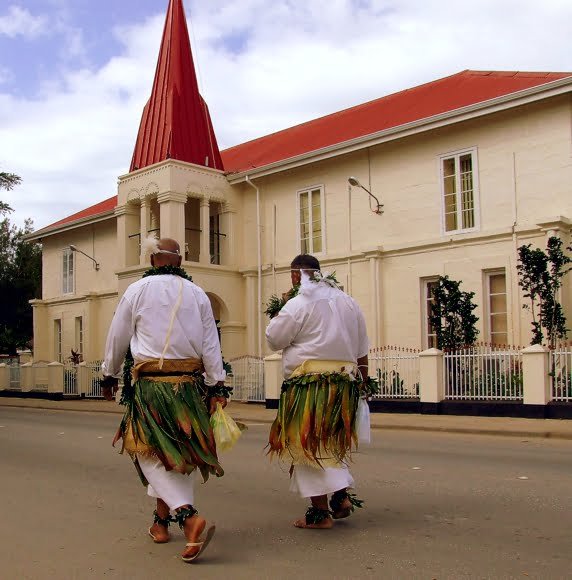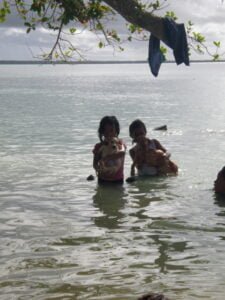Tonga is a stunning island nation in the South Pacific, known for its friendly people, beautiful beaches, and incredible wildlife encounters like swimming with humpback whales. However, traveling to Tonga requires some preparation, as there is limited information available online compared to other destinations. This post will provide essential tips to help you plan an amazing trip to Tonga, covering everything from getting there, where to stay, what to do, and cultural considerations to keep in mind.

Entry Requirements
When planning your trip to Tonga, understanding the entry requirements is crucial to ensure a smooth journey. One of the first considerations is whether you require a visa. Citizens of many countries, including the United States, Canada, the United Kingdom, Australia, and New Zealand, do not need a visa for stays up to 30 days. However, it is essential to verify this information with the Tongan consulate or embassy in your country as regulations can change.
See here for more detailed list.
If a visa is required, it can typically be obtained through the Tongan embassy or consulate in your home country. The process usually involves filling out an application form, providing a passport-sized photograph, and paying a fee, which varies depending on your nationality and the length of your stay. Ensure that your passport has at least six months of validity from the date of your entry into Tonga.
Health considerations are also an important part of travel to Tonga. While there are no mandatory vaccinations for entry, it is recommended to be up-to-date with routine immunizations such as measles, mumps, rubella (MMR), diphtheria-tetanus-pertussis, and influenza. Additionally, vaccinations for hepatitis A, hepatitis B, and typhoid are advisable, particularly if you plan to engage in outdoor or rural activities.
Always consult your healthcare provider for personalized advice well ahead of your travel date.
See here for more information.
Documentation plays a vital role in your travel preparations. Besides your passport, you may need to present proof of onward or return travel. This requirement ensures you do not overstay your visa. It is also prudent to carry copies of important documents like your visa, travel insurance, and vaccination certificates. These copies can be incredibly useful in case of loss or theft of the originals.
By thoroughly understanding and preparing for the entry requirements, you pave the way for a hassle-free experience when visiting Tonga. This preparation not only ensures compliance with legal stipulations but also safeguards your health and well-being during your stay in this beautiful island nation.
Currency Exchange and Budgeting
When planning your travel to Tonga, effective budgeting and currency exchange are essential components for a smooth experience. The official currency in Tonga is the Tongan Paʻanga (TOP). It is advisable to exchange some money before you arrive, as this can provide peace of mind for initial expenses such as taxis and meals. However, for better exchange rates, consider using local banks or ATMs once you are in the country. There is a money exchange counter available at the airport and an ATM. Major towns like Nuku’alofa and tourist areas have ATMs that accept international cards, but it’s always wise to carry some cash, particularly if you plan to visit remote islands where banking facilities may be limited.
Understanding the costs associated with typical expenses can help you create a more accurate budget for your trip to Tonga. For accommodation, budget options such as guesthouses and hostels can cost around 50-100 TOP per night, while mid-range hotels range from 150-300 TOP. High-end resorts suach as the Tanoa Hotel can exceed 500 TOP nightly. Food costs vary; expect to spend about 10-30 TOP per meal at small fast food joints, whereas dining at more restaurant style establishments may cost between 50-100 TOP per person. Tipping is not a common practice in Tonga, but it is appreciated for exceptional service.
By understanding the local currency, typical costs, and tipping etiquette, you can ensure a well-planned and enjoyable stay in Tonga. These travel tips for Tonga will help you manage your finances effectively, allowing you to focus on exploring and experiencing the unique beauty and culture of this island paradise.
Getting Around
When planning a visit to Tonga, understanding the transportation landscape is crucial for a smooth and enjoyable trip. Various modes of transportation are available, each catering to different preferences and budgets.
Public transportation in Tonga primarily consists of buses and ferries. Buses are the most common and affordable option for getting around the main island of Tongatapu. They follow designated routes, making stops at major towns and villages. However, it’s important to note that bus schedules are not always strictly adhered to, and services may be less frequent on weekends and public holidays. Buses are a great way to experience local culture, but for travelers on a tight schedule, other options might be more suitable.
Ferries are another vital component of Tonga’s transportation network, especially for inter-island travel. They connect the main islands, including Tongatapu, Ha’apai, and Vava’u. While ferry services are generally reliable, they can be affected by weather conditions. It’s advisable to check the schedule on their facebook pages particularly during peak travel seasons. There is no way to book in advance and schedules can change so it is better to arrive in Tonga and go to their physical office to purchase tickets.
Taxis are widely available in urban areas and can be a more convenient option for travelers looking for flexibility. They do not operate on a metered system, so it’s crucial to agree on the fare before starting your journey. For those seeking comfort and efficiency, taxis can be a suitable choice, especially for short distances or night travel when public transport options are limited. Aiport to town area typically goes for TOP$70.
For the more independent traveler, renting a car offers the ultimate freedom to explore Tonga at your own pace. Several car rental agencies operate on the main island, providing a range of vehicles to suit different needs. Driving in Tonga requires a valid international driver’s permit, and visitors should be aware that driving is on the left side of the road. Road conditions can vary, with some rural areas having unpaved roads, so a vehicle with good ground clearance is recommended.
Overall, each transportation method in Tonga has its own set of advantages and considerations. By understanding these options, travelers can make informed decisions that best suit their itineraries and preferences, ensuring a seamless and enjoyable travel experience.

Packing Essentials
When planning to travel to Tonga, packing the right essentials is crucial to ensure a comfortable and respectful visit. The climate in Tonga is tropical, characterized by warm temperatures and high humidity throughout the year. Lightweight, breathable clothing is highly recommended to keep cool. For those visiting during the rainy season, typically from November to April, packing a light rain jacket or waterproof poncho is advisable.
Given the cultural norms in Tonga, modest attire is appreciated, especially in rural areas and during visits to villages. Men should consider packing collared shirts and long pants, while women should include skirts or dresses that cover the knees, as well as tops that cover the shoulders. Swimsuits are appropriate at the beach or resort areas, but it is courteous to cover up when away from these settings. Do not be surprised if you see women swimming in full clothing, this is typical here in the islands.
Footwear should include comfortable walking shoes for exploring and a pair of sandals for the beach. Packing a wide-brimmed hat, sunglasses, and sunscreen with high SPF is essential to protect against the strong tropical sun. Additionally, insect repellent will help keep mosquitoes and other bugs at bay, especially in the evenings. You can alsopurchase repellents at the pharmacies here.
Travelers should remember to bring the necessary converters or adapters for electronic devices. Tonga operates on a 240V supply voltage and 50Hz, with plug types I. Ensuring that you have the right adapters will avoid any inconvenience during your stay.
Lastly, don’t forget to pack any personal medications and a basic first aid kit. While pharmacies are available, having your essentials on hand can save time and stress. By being well-prepared with these packing essentials, visitors can fully enjoy their time in Tonga, embracing both the natural beauty and rich cultural heritage of the islands.
Practical Tips for Everyone
Traveling to Tonga is an exciting adventure, but it’s crucial to prioritize safety and security. While Tonga is generally safe, exercise caution in less populated areas and avoid walking alone at night. Be aware of common scams, such as overcharging by some taxi drivers or unsolicited offers for tour guides. It’s a good practice to verify prices beforehand and use reputable services.
Language barriers can pose challenges, but a few key phrases in Tongan can go a long way. Common greetings like “Mālō e lelei” (Hello) and “Kataki” (Please) show respect and effort to connect with locals. Majority of Tongans can speak and understand English but knowing a few phrases can be a start to forming friendships.
Understanding cultural etiquette is essential when visiting Tonga. Dress modestly, especially in rural areas and during visits to religious sites. Avoid wearing beachwear outside of resort areas and always ask permission before taking photographs of people. Social customs in Tonga emphasize respect and politeness, so be sure to greet elders formally and remove your shoes before entering homes.
Checkout our article on understanding Tongan language and customs.
Staying connected while in Tonga is straightforward with a few preparatory steps. Consider purchasing a local SIM card for affordable mobile connectivity. Providers like Digicel and TCC offer various plans that cater to tourists, ensuring you can stay in touch with family and friends. Additionally, many hotels and cafes offer Wi-Fi, though speeds may vary.
By keeping these practical tips in mind, your visit to Tonga will be both enjoyable and respectful. Embrace the local culture, stay aware of your surroundings, and make use of modern tools to overcome any language barriers. Following these guidelines will help ensure a memorable and smooth travel experience.
If you are planning to travel to Tonga, consider booking your stay at Hotel Nuku’alofa for an unforgettable experience. Strategically located in the heart of the Central Business District, this hotel offers unparalleled convenience for exploring the vibrant surroundings and key attractions. The central location ensures easy access to popular spots, making your visit to Tonga both efficient and enjoyable.
Make your reservation today and ensure your visit to Tonga is as enjoyable and hassle-free as possible.
